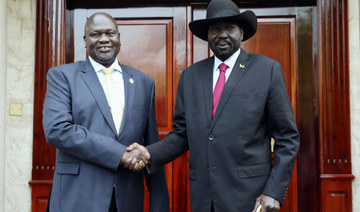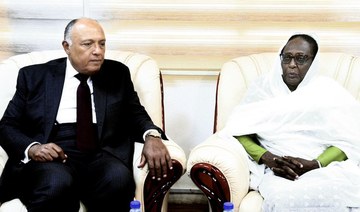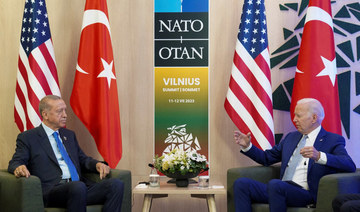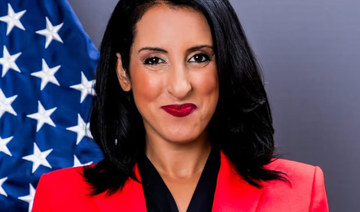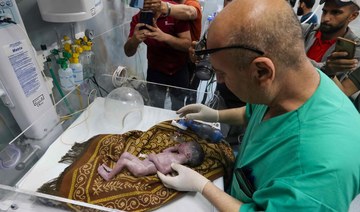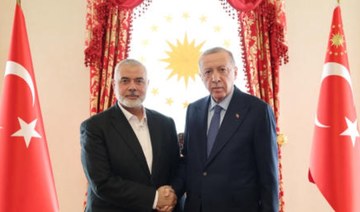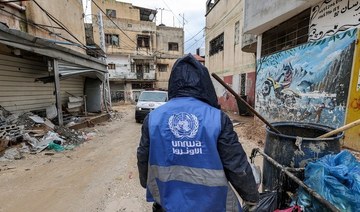WAD RAMLI, Sudan: In Wad Ramli, a village outside the Sudanese capital of Khartoum, Alsamani Fathalrahman and his neighbors traveled in blue speedboats through flooded streets trying to salvage their belongings.
“In just five hours, the area was completely flooded, with no prior notice, so people could only save themselves,” Fathalrahman said, as the 27-year-old engineer recovered bed frames and school books from abandoned homes.
The flooding that has killed scores of people and destroyed more than 100,000 homes is the first crisis to test Sudan’s new prime minister, the African country’s first civilian leader in 30 years.
Prime Minister Abdalla Hamdok’s August 21 inauguration raised hopes that the new civilian-led government would mean a fresh approach, including being more responsive to the needs of the Sudanese people.
But Hamdok is hamstrung by an economy crippled by debt and a legacy of under investment in infrastructure that has exacerbated the flood crisis.
The communities hit by the floods, which started in July, have been mostly left to fend for themselves or rely on aid with little help from authorities, just as they did under the previous regime, according to residents, community groups and charity workers.
“The civilian government is right now an abstract notion,” said Magdi El Gizouli, a Sudanese academic based in Germany and fellow of the Rift Valley Institute, a non-profit research organization. “It will emerge eventually but whether it can exercise power is a totally different story.”
The prime minister’s office and the military declined to comment on the flood response.
The flood crisis comes at a time of huge transition for Sudan, as months of protests ushered in a transitional government that must also tackle a full-blown economic crisis and internal conflicts, issues that helped bring down the three-decade rule of Omar Al-Bashir.
Hamdok’s cabinet was sworn in on Sunday; civilian state governors are yet to be appointed.
In an interview with Reuters days after his inauguration, Hamdok said the flood situation required “immediate and strategic intervention” and that “the government must put in place solutions and plans to ensure that the harm to citizens from floods and rains does not repeat.”
He has announced the formation of a task force to focus on the flood-relief effort and said Sudan should follow the lead of other countries by building damns, channels and other ways to make use of the water. ADMINISTRATIVE VOID
During a visit to Wad Ramli in late August, Hamdok was interrupted by chants from residents demanding that they be resettled to avoid a repeat of situation in the future.
“I hear you very well,” he responded. “Together we will execute this resettlement plan. You have to help us with suggestions.”
Under the power-sharing arrangement between the military council and the main opposition coalition, Hamdok will head a transitional government for just over three years, until an election.
But the formation of the government, which was supposed to be in place by the end of last month, was repeatedly delayed due to political wrangling over cabinet appointments as well as months of negotiations between the military and the main opposition coalition.
Hamdok has apologized for the delay.
That has left a void for the country’s most powerful paramilitary group, the large and well-financed Rapid Support Forces (RSF), to fill in terms of the flood response, said academic Gizouli.
RSF commander General Mohamed Hamdan Dagalo, who is known as Hemedti, is seen by analysts as the most powerful member of the newly-established sovereign council, the joint military-civilian body that oversees to the prime minister and the cabinet. The RSF has also been accused by protesters and rights groups of involvement in killing demonstrators, something Hemedti has previously denied.
The military has supplied some flood assistance, including mattresses and tents, according to state media and residents.
NEIGHBOURHOOD GROUPS
Help has instead come from charities and international organizations like the United Nations, including medical supplies and transport, according to residents and the organizations. Gulf countries including Kuwait and Qatar have also provided assistance.
Khartoum-based charity Nafeer has provided tents, mosquito nets, food, toiletries, and construction equipment to flood hit areas across the country, according to Ghazi Elrayah, a volunteer with the charity who focuses on external communication.
The response from the authorities has been “very weak. It hasn’t really changed this year,” said Elrayah. “We do the emergency relief for this country. What we are doing is not a permanent solution,” Elrayah added.
Joining the flood-relief effort across Khartoum are what are known as neighborhood resistance committees that had previously focused on mobilizing communities to join the anti-Bashir protests that led to his ouster.
The committees are helping distribute supplies they have received largely through donations, and are working with groups like Nafeer, which has provided equipment to dig ditches.
That includes neighborhoods in the region known as Khartoum’s “southern belt” that have been particularly hard hit because of the large number of slums, which are easily demolished by the floods.
A member of one of the committees there, who wished to be identified only by his last name Osman due to security concerns, said the committee had approached local authorities, hoping for supplies and equipment to help dig ditches.
“We didn’t get anything from them. Nothing, no aid,” Osman said. He added that the committees are now focusing on battling waterborne illnesses like malaria, which are spreading as a result of the flooding.
Mohamed Ali Alshareef, general manager for the Jebel Awlia local authority that includes the southern belt, said the authority provided some tents, pesticides and drainage services but that the political changes had impacted its finances.
“The situation was above our capacity,” he said.
Sudan’s major floods present first challenge for its new leader
Sudan’s major floods present first challenge for its new leader
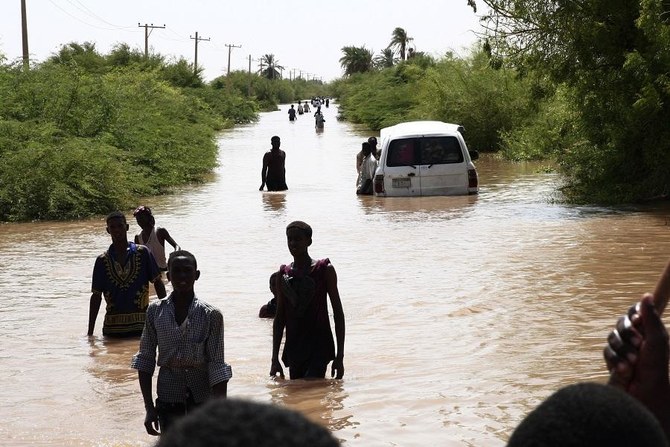
- The flooding that has killed scores of people and destroyed more than 100,000 homes is the first crisis to test Sudan’s new PM
- The communities hit by the floods, which started in July, have been mostly left to fend for themselves or rely on aid with little help from authorities
Syrian woman is jailed for life over Istanbul killer blast; over 20 others also get prison sentences
Syrian woman is jailed for life over Istanbul killer blast; over 20 others also get prison sentences
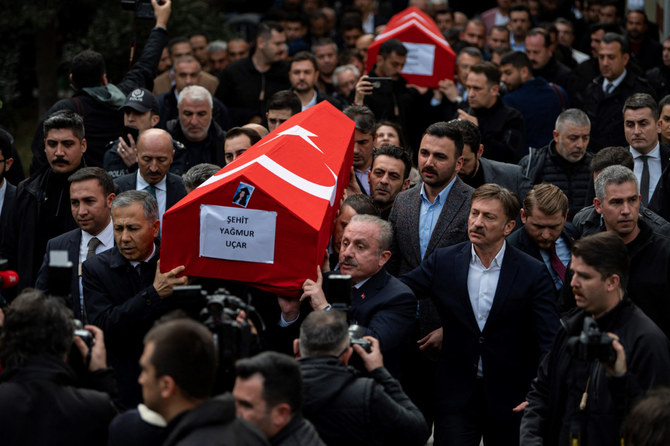
- Ahlam Albashir was given a total of seven life sentences by a Turkish court for carrying out the attack in Istiklal Avenue on Nov. 13, 2022
- Twenty others were given prison sentences ranging from four years to life
JEDDAH: A Syrian woman who planted a bomb that killed six people in Istanbul’s main shopping street 18 months ago was jailed for life on Friday.
Ahlam Albashir was given a total of seven life sentences by a Turkish court for carrying out the attack in Istiklal Avenue on Nov. 13, 2022. Six Turkish citizens, two members each from three families, died in the blast in the busy street packed with shoppers and tourists. About 100 people were injured.
More than 30 other people were accused in connection with the explosion. Four were released from prison on Friday, and a further 10 were ordered to be tried separately in their absence because they could not be found.
Twenty others were given prison sentences ranging from four years to life. Of those, six received aggravated life imprisonment for murder and “disrupting the unity and integrity of the state.”
Turkiye blamed Kurdish militants for the explosion, and said the order for the attack was given in Kobani in northern Syria, where Turkish forces have conducted operations against the Syrian Kurdish YPG militia in recent years.
The YPG and the outlawed PKK Kurdish separatist group, which has fought a decades-old insurgency against the Turkish state, denied involvement in the attack. No group admitted it.
Istanbul has been attacked in the past by Kurdish, Islamist and leftist militants. A wave of bombings and other attacks began nationwide when a ceasefire between Ankara and the PKK broke down in mid-2015.
More than 40,000 people have been killed in the PKK’s conflict with Turkiye since the militant group took up arms in 1984. It is considered a terrorist organisation by Turkiye, the EU and the US.
1 case dismissed, 4 on hold in UN investigation into Oct. 7 allegations against UNRWA staff
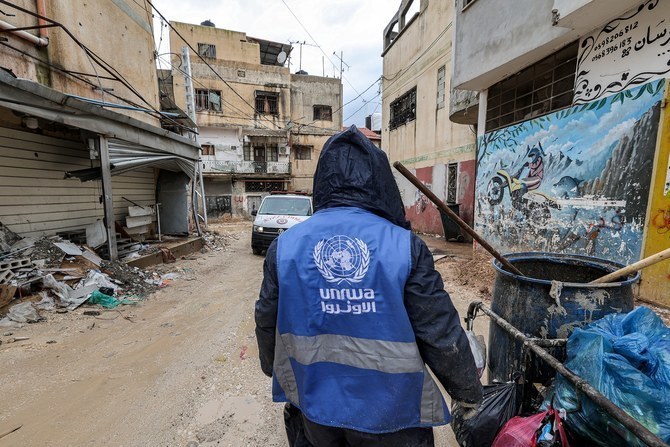
- Investigators have been looking into cases of 12 agency workers accused by Israel in January of participating in attacks by Hamas, and 7 others named later
- 14 cases remain under investigation but the others were dismissed or suspended due to lack of evidence; UN’s internal investigators due to visit Israel again in May
NEW YORK CITY: UN spokesperson Stephane Dujarric said on Friday that the organization’s internal oversight body has been investigating 19 employees of the UN Relief and Works Agency for Palestine Refugees over allegations that they were affiliated with Hamas and other militant groups.
Israeli authorities alleged in January that 12 UNRWA workers participated in the Oct. 7 attacks by Hamas against Israel.
The agency immediately cut ties with the named individuals, and UN Secretary-General Antonio Guterres, in consultation with UNRWA Commissioner General Philippe Lazzarini, ordered an independent review to evaluate the measures taken by the agency to ensure adherence to the principle of neutrality and how it responds to allegations of breaches of neutrality, particularly in the challenging context of the situation in Gaza.
In a wide-ranging report published this week, the investigators, led by Catherine Colonna, a former foreign minister of France, said Israeli authorities have yet to provide any evidence to support the allegations against UNRWA workers. They also noted that Israel had not previously raised concerns about any individuals named on the agency staffing lists it has been receiving since 2011.
They stated in the report: “In the absence of a political solution between Israel and the Palestinians, UNRWA remains pivotal in providing life-saving humanitarian aid and essential social services, particularly in health and education, to Palestinian refugees in Gaza, Jordan, Lebanon, Syria and the West Bank.
“As such, UNRWA is irreplaceable and indispensable to Palestinians’ human and economic development. In addition, many view UNRWA as a humanitarian lifeline.”
Guterres also ordered a separate investigation by the UN’s own Office of Internal Oversight Services to determine the accuracy of the Israeli allegations. The mandate of the OIOS, an independent office within the UN Secretariat, is to assist the secretary-general in the handling of UN resources and staff through the provision of internal audit, investigation, inspection and evaluation services.
Dujarric said the 19 members of UNRWA staff under investigation included the 12 named by the Israeli allegations in January, whose contracts were immediately terminated, and seven others the UN subsequently received information about, five in March and two in April.
Of the 12 employees identified by Israeli authorities in January, eight remain under OIOS investigation, Dujarric said. One case was dismissed for lack of evidence and corrective administrative action is being explored, he added, and three cases were suspended because “the information provided by Israel is not sufficient for OIOS to proceed with an investigation. UNRWA is considering what administrative action to take while they are under investigation.”
Regarding the seven additional cases brought to the attention of the UN, one has been suspended “pending receipt of additional supporting evidence,” Dujarric said.
“The remaining six of those cases are currently under investigation by OIOS. OIOS has informed us that its investigators had traveled to Israel for discussions with the Israeli authorities and will undertake another visit during May.
“These discussions are continuing and have so far been productive and have enabled progress on the investigations.”
The initial allegations against some members of its staff threw the agency, which provides aid and other services to Palestinian refugees in Gaza and across the region, into crisis. The US, the biggest single funder of UNRWA, and several other major donors put their contributions to the organization on hold.
In all, 16 UN member states suspended or paused donations, while others imposed conditions on further contributions, putting the future of the agency in doubt. Many of the countries, including Germany, later said their funding would resume. However, US donations remain on hold.
37 million tonnes of debris in Gaza could take years to clear: UN
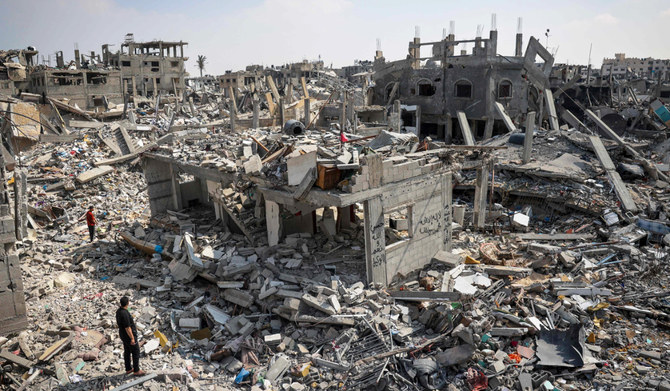
- “We do know that we estimated 37 million tonnes of debris, which is approximately 300 kg per square meter,” Lodhammar added
GENEVA: There are some 37 million tonnes of debris to clear away in Gaza once the Israeli offensive is over, a senior official with the UN Mine Action Service said on Friday.
And unexploded ordnance buried in the rubble would complicate that work, said UNMAS’ Pehr Lodhammar, who has run mine programs in countries such as Iraq.
It was impossible to say how much of the ammunition fired in Gaza remained live, said Lodhammar.
“We know that typically there is a failure rate of at least 10 percent of land service ammunition,” he told journalists in Geneva.

“We do know that we estimated 37 million tonnes of debris, which is approximately 300 kg per square meter,” he added.
He said that starting from a hypothetical number of 100 trucks would take 14 years to clear away.
Lodhammar was speaking as UNMAS launched its 2023 annual report on Friday.
The war in Gaza between Israel and Hamas erupted when Hamas launched an unprecedented attack on Israel on Oct. 7.
Also on Friday, the head of an aid group warned that an Israeli assault on southern Gaza’s Rafah area would spell disaster for civilians, not only in Gaza but across the Middle East,
Jan Egeland said the region faced a “countdown to an even bigger conflict.”
Egeland, the secretary-general of the Norwegian Refugee Council, also said that 1.3 million civilians seeking refuge in Rafah — including his aid group’s staff — were living in “indescribable fear” of an Israeli offensive.
Egeland urged Israeli Prime Minister Benjamin Netanyahu not to proceed with the operation.
“Netanyahu, stop this. It is a disaster not only for the Palestinians, it would be a disaster for Israel. You will have a stain on the Israeli conscience and history forever,” he said.
The NRC head spoke to Reuters in Lebanon, where he visited southern villages that he said were caught in a “horrific crossfire” between the Israeli military and Hezbollah.
“I am just scared that we haven’t learned from 2006,” said Egeland, referring to the month-long war between Hezbollah and Israel that was the two foes’ last bloody confrontation, during which he headed the UN’s relief operations.
“We do not need another war in the Middle East. At the moment, I’m feeling like (this is a) countdown to an even bigger conflict,” he said.
Turkiye’s Erdogan postpones tentative White House visit, sources say
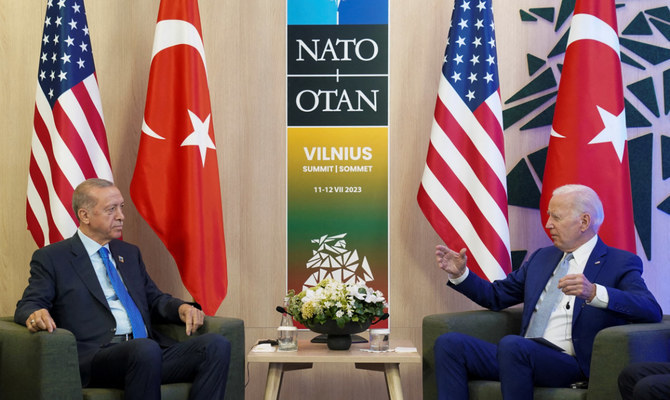
- A new date will soon be set due to a change in Erdogan’s schedule, the Turkish official said
- The source familiar with the matter, speaking on condition of anonymity, said it was unclear what prompted the postponement
WASHINGTON/ANKARA: Turkish President Tayyip Erdogan has postponed a White House meeting with President Joe Biden, a source familiar with the situation and a Turkish official said on Friday of a visit that had been tentatively planned for May 9.
A White House spokesperson, while not confirming the May 9 date, said: “We look forward to hosting President Erdogan at the White House at a mutually convenient time, but we have not been able to align our schedules and do not have any visit to announce at this time.”
A new date will soon be set due to a change in Erdogan’s schedule, the Turkish official said, requesting anonymity. The source familiar with the matter, speaking on condition of anonymity, said it was unclear what prompted the postponement.
The White House never formally announced the visit but a US official told Reuters in late March that following Turkish Foreign Minister Hakan Fidan’s visit to Washington, the White House offered and Ankara had accepted May 9 for a meeting between Biden and Erdogan.
That would have been the first bilateral visit to Washington since 2019 when Erdogan met with then President Donald Trump, a Republican. He and Biden have met a few times at international summits and spoken by phone since the Democratic US president took office in January 2021.
Ties between the US and Turkiye have been long strained by differences on a range of issues. While they have thawed since Ankara ratified Sweden’s NATO membership bid earlier this year, tensions persist over Syria and Russia and the war in Gaza.
Erdogan visited neighboring Iraq this week. Last weekend, he met with Hamas leader Ismail Haniyeh in Istanbul, the first meeting between Erdogan and a Hamas delegation headed by Haniyeh since Israel began its military offensive in the Gaza Strip following Hamas’ Oct. 7 attack.
Netherlands will consider resuming support to Palestinian UNRWA agency
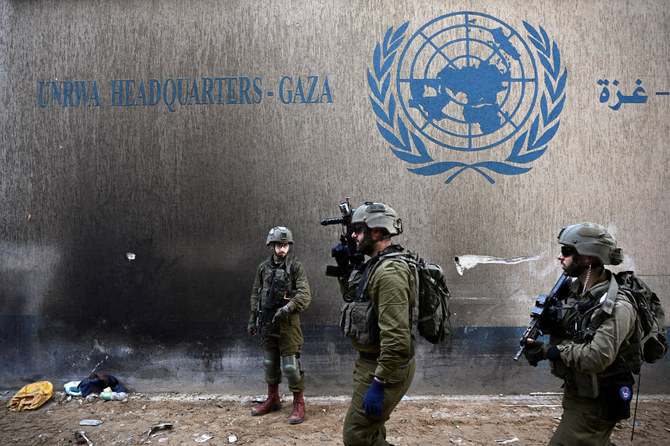
- The decision follows an investigation by the former French foreign minister Catherine Colonna
- The Colonna-led review of the agency’s neutrality concluded Israel had yet to back up its accusations
AMSTERDAM: The Dutch government on Friday said it would consider resuming funding for the UN agency for Palestinians (UNRWA) in Gaza if the agency implements recommendations to strengthen its neutrality.
The decision follows an investigation by the former French foreign minister Catherine Colonna released on Monday into whether some UNRWA employees were involved in the Oct. 7 attack by Hamas.
The Colonna-led review of the agency’s neutrality concluded Israel had yet to back up its accusations that hundreds of UNRWA staff were operatives in Gaza terrorist groups.
The Dutch government said it had already given its yearly donation to UNRWA in January, before the accusations against the agency came to light. It was one of several European countries that paused funding for the agency after the allegations were levied.
It said it did not foresee any additional donations in the near future, but would consider UNRWA as a potential partner if requests for aid were made.



